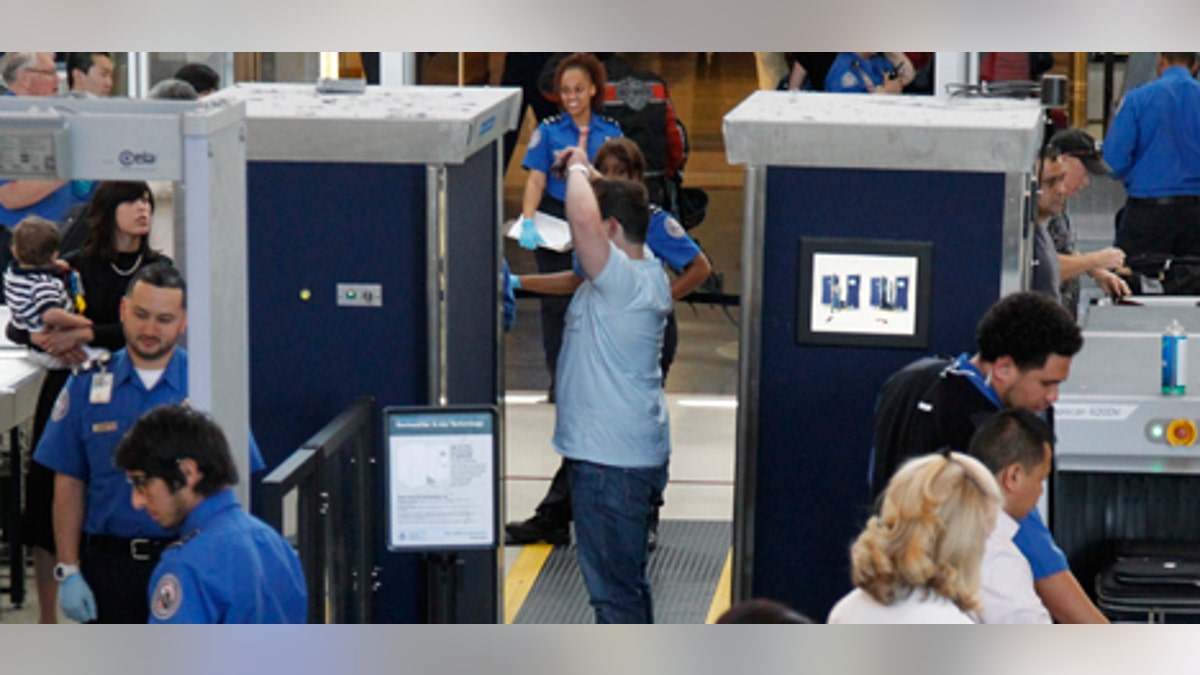
(Reuters)
Flying isn’t always fun: long lines, smelly toilets, bad food, fussy babies and confined spaces. When the Transportation Security Administration introduced full-body scanners at security checkpoints in airports nationwide, it only added to people’s anxiety.
These scanners are known radiation purveyors, and even though the amount of radiation emitted is supposed to be a very small amount, the TSA recently revealed plans to test scanner operators for – what else – radiation exposure.
The TSA said it would be open to conducting additional tests on the full-body scanners to address ongoing public concerns. As in so many cases, the powers-that-be tend only to take action when backed into a corner by public opinion.
Last month, the TSA issued a request that government vendors provide personal dosimeters (devices that measure radiation exposure) to TSA operators, Newsday reported.
"TSA is dedicated to the health and safety of its employees," TSA spokesman Nico Melendez said in the paper. "We continuously test our technology to ensure it is safe for both passengers and our officers and post all results to our website."
Click here to read more about this story in Newsday.
The agency should obviously be devoted to the health of its employees, but what about the rest of us?
I wonder, have a significant number of security personnel come down with radiation-related illnesses since the machines were introduced into their daily working environment? If history is any guide, odds are this is not a proactive move by the TSA.
The U.S. National Library of Medicine plainly states on its website that repeated exposure to small amounts of radiation over time raises a person’s risk of developing cancer. In more substantial doses, it can cause gene mutations, burns, nausea, weakness, hair loss, and reduced organ function. As a result of these and other health concerns - or just because it makes good sense - the European Union banned the use of these full-body scanners, opting instead for millimeter-wave, lower frequency machines.
Radiation is dangerous, and it can be difficult to avoid at the airport or anywhere else. Television screens emit radiation, and so does the computer screen you’re probably reading this article on right now. Bananas, granite and cat litter all contain radiation. And the airport scanners are now another exposure.
Until substantial evidence of actual radiation exposure, and the negative consequences thereof, is proven in a government-endorsed study, the FDA, the TSA and other three-letter agencies will continue insisting it’s perfectly fine to go through the full-body scanners at the airport. Though passengers can opt instead to be patted down by security agents, the choice shouldn’t be between the lesser of two evils.
The physical and mental discomforts of air travel are real, and they are many. Adding another layer of stress to an already stressful situation is not only counterintuitive, it is unhealthy. If even the slightest possibility exists that people are radiated each time they pass through or work near the scanners, the machines should be reconfigured or removed until deemed totally safe—particularly if, as some reports suggest, they’re doing little more to ensure further safety on board the plane anyway.
Deirdre Imus, Founder of the site devoted to environmental health, dienviro.org, is President and Founder of The Deirdre Imus Environmental Health Center™ at Hackensack University Medical Center and Co-Founder/Director of the Imus Cattle Ranch for Kids with Cancer. She is a New York Times best-selling author and a frequent contributor to FoxNewsHealth.com, Fox Business Channel and Fox News Channel. Check out her website at dienviro.org. 'Like' her Facebook page here.








































